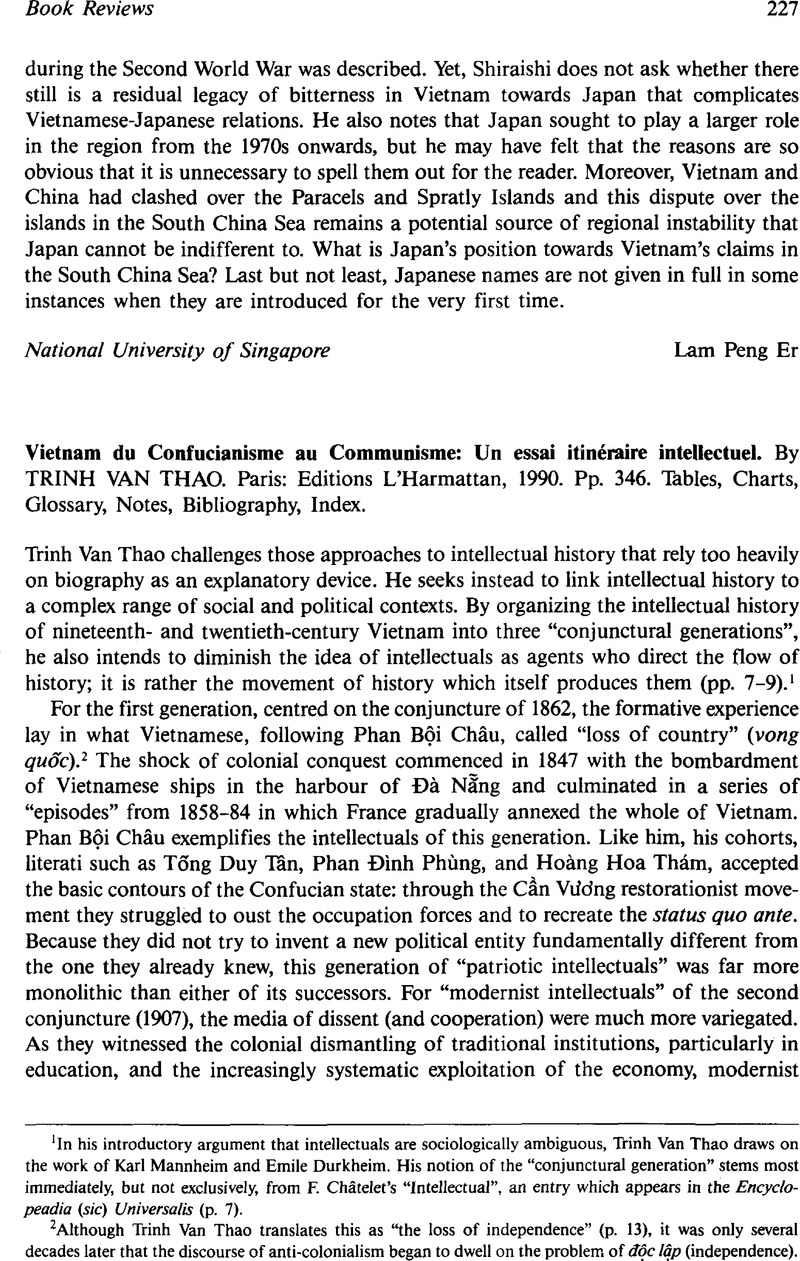No CrossRef data available.
Published online by Cambridge University Press: 24 August 2009

1 In his introductory argument that intellectuals are sociologically ambiguous, Trinh Van Thao draws on the work of Karl Mannheim and Emile Durkheim. His notion of the “conjunctural generation” stems most immediately, but not exclusively, from Châtelet, F.'s “Intellectual”, an entry which appears in the Encyclopeadia (sic) Universalis (p. 7).Google Scholar
2 Although Trinh Van Thao translates this as “the loss of independence” (p. 13), it was only several decades later that the discourse of anti-colonialism began to dwell on the problem of độc lập (independence).
3 The author translates Đông Kinh Nghĩa Thục as the “Institute of the Just Cause of Tonkin” and labels it a “Vietnamese version” of the Chinese Khanh Ung Nghia Thuc (p. 15).
4 Curiously, Trinh Van Thao characterizes this work as “le manifeste moderniste” (p. 183) and alternately translates the title as Nouvelles études anthropologiques (p. 183) or Le Manifeste (p. 191). I am adhering to the translation proposed by Marr, David G. in Vietnamese Anti-Colonialism, 1885–1925 (Berkeley: University of California Press, 1971), p. 321.Google Scholar
5 The development of ideology in Vietnam from the nineteenth to the twentieth century (Hà Nội: Nhà xuãt bán khoa học xã hộ i, 1987).